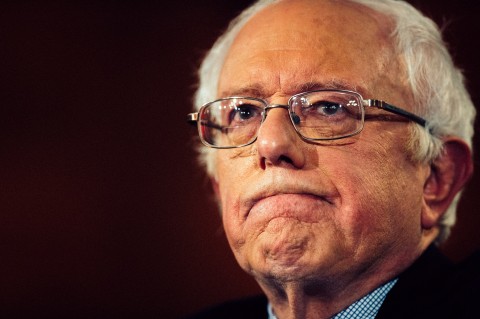Was Bernie Sanders imposing a religious test for office?
The senator’s reasonable concern—that Muslims and people of all religions be treated equally—led to an unreasonable demand.

Senator Bernie Sanders (I., Vt.) turned a Senate confirmation hearing last month into an unexpected theological interrogation when he voiced concern that the nominee, an evangelical Christian, had declared Islam to have a “deficient theology.” Sanders was alarmed that Russell Vought, nominated to a post at the Office of Management and Budget, had once written that Muslims “do not know God because they have rejected Jesus Christ his Son, and they stand condemned.” Such a view of Islam, Sanders declared, was “indefensible,” “hateful,” “Islamophobic,” and “an insult to over a billion Muslims throughout the world.”
Vought replied that in those instances he had been merely stating his Christian beliefs. Sanders, later joined by Senator Chris Van Hollen (D., Md.), suggested that it was preferable to be the kind of Christian who does not view Muslims in those terms, and he concluded that he would not endorse for public office a person with such a negative assessment of Islam.
Sanders was rightly criticized afterward for being tone-deaf to evangelical Christianity and for coming close to imposing a religion test for public office. Although it is fair to ask candidates about their religious faith as it affects their duties in office, Sanders was mistaken to think that Vought had to abandon his fundamental beliefs in order to serve in government. Such a requirement is precisely what the constitutional guarantee of religious liberty is meant to prevent. (At the hearing, Vought eventually explained that his views of Islam did not mean he would discriminate against Muslims and that his Christian belief that each person bears the image of God would in fact lead him to treat everyone fairly.)




